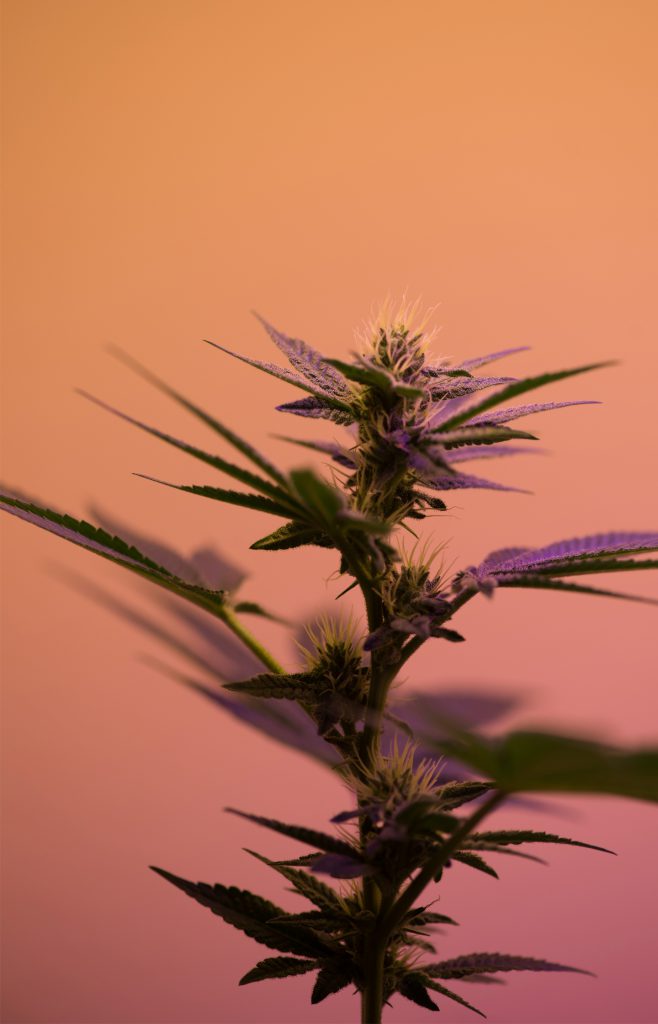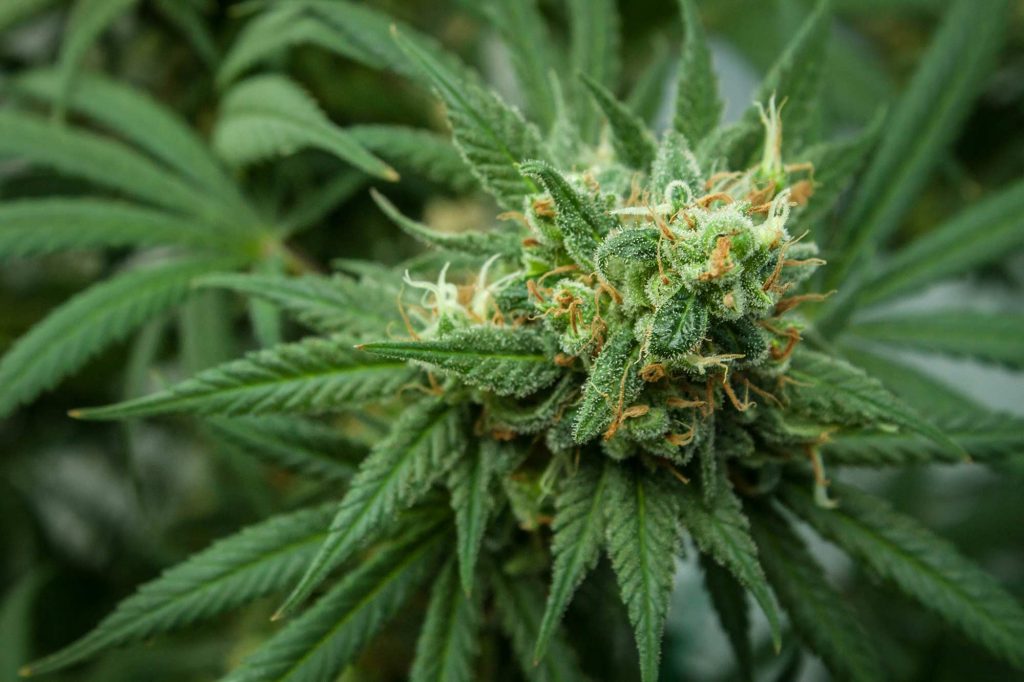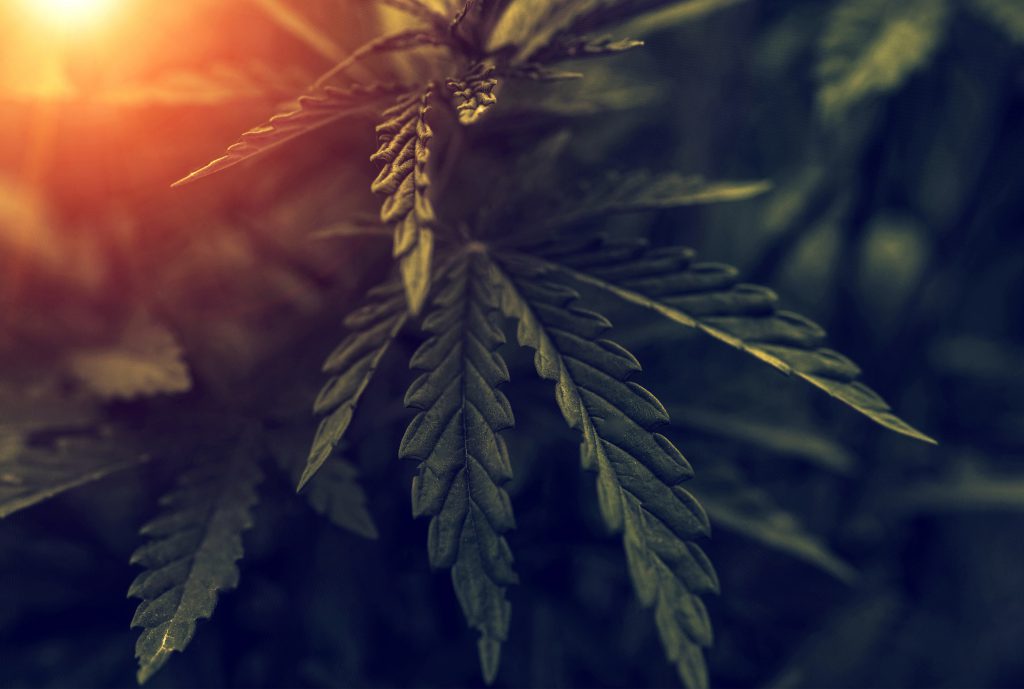Blog
What is Full Spectrum CBD?
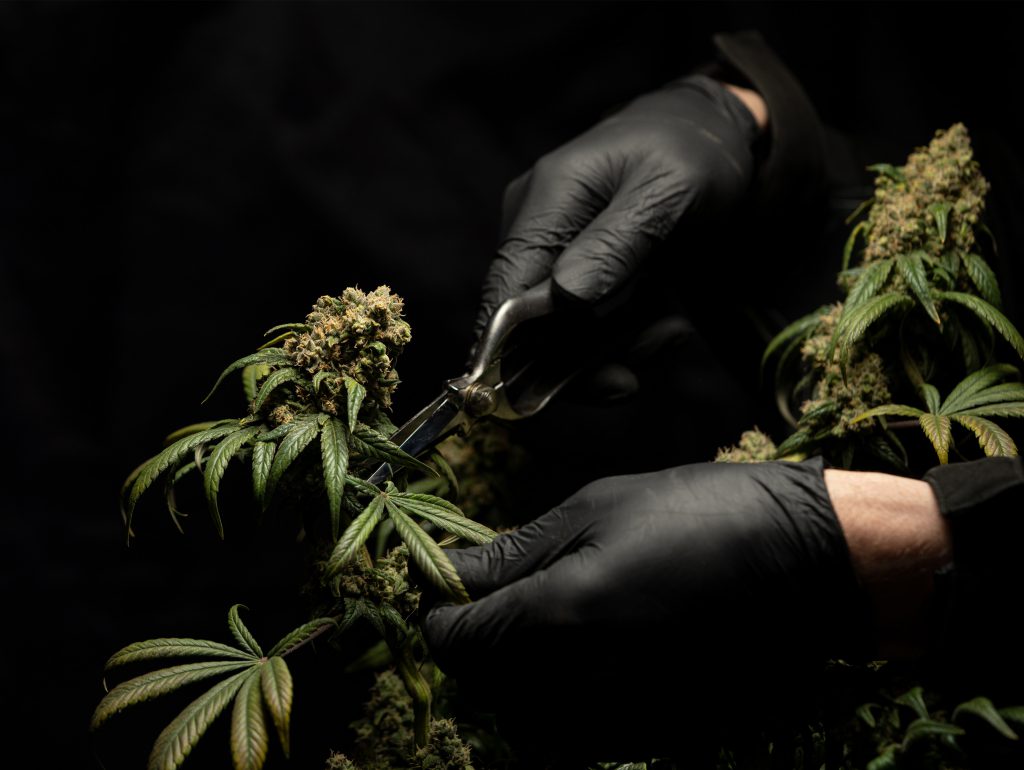
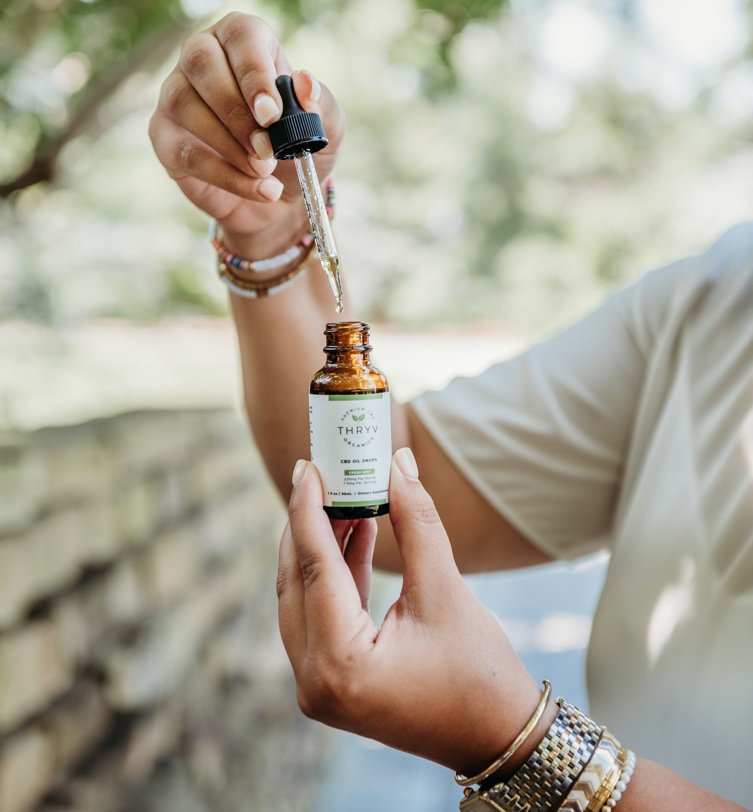
What is Full Spectrum CBD? The Short Answer
Full spectrum CBD oil, also called whole plant cannabidiol, is a cannabis or hemp derived oil which includes the hundred plus cannabinoids (including psychoactive THC), terpenes and flavonoids that naturally occur in the plant as well as high concentrations of CBD.
Whilst a CBD isolate product contains the isolated CBD cannabinoid only, a full spectrum CBD product includes as many of the plant’s other naturally occurring compounds as possible. Many people believe that the medicinal properties of CBD are enhanced by keeping these other compounds so they can work synergistically as an ‘entourage’.
What we’ll cover in this article
- 1. What is ‘the entourage effect’ and why is it important?
- 2. What is the difference between full spectrum and isolated CBD?
- 3. Will full spectrum CBD oil make you ‘high’?
- 4. Will CBD oil show up on a drug test?
- 5. Do you need a prescription to get full-spectrum CBD in the UK?
- 6. What cannabinoids are in full spectrum CBD oil? What are their therapeutic properties?
- 7. What CBD products are full spectrum?
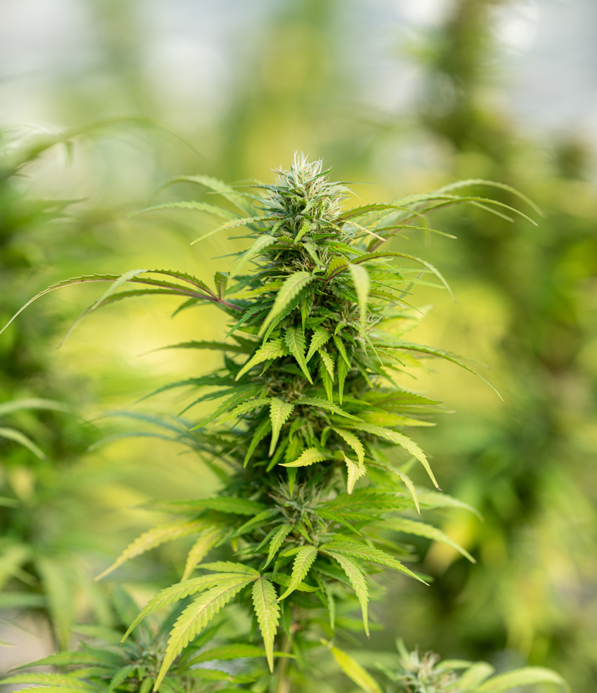
What is ‘the entourage effect’ and why is it important?
Cannabis contains an enormous range of compounds such as terpenes, essential oils, flavonoids, fatty acids and over 120 cannabinoids many of which we are still learning the full benefits of.
Much focus has been given to the properties of just two of these cannabinoids, tetrahydrocannabinol (THC) and cannabidiol (CBD) but the other compounds in the plant are also important for managing our body’s endocannabinoid system which is key to regulating our sleep, mood, appetite, muscle inflammation, memory and fertility.
The ‘entourage effect’ is the theory that taking the full range of cannabis’ compounds together is more effective than isolating and ingesting one compound, such as CBD, on its own.
Widely acclaimed research by Israeli scientists Shimon Ben-Shaba and Raphael Mechoulam suggests that preserving the complex interrelationship between each of these compounds, rather than isolating them, is key to enhancing the overall effect of the plant as a treatment. Put simply the effects of the cannabis plant as a whole, is greater than the sum of its parts.
A patient looking for the potentially calming benefits of a high percentage CBD product will benefit more if it includes the THC that the plant naturally produces as well as the full spectrum of the other compounds it contains (terpenes, essential oils….)
What is the difference between full spectrum and isolate CBD?
CBD products generally fall into three categories. Understanding what each product contains can help you choose the best formula for your requirements.
- CBD Full spectrum contains the full array of essential oils, terpenes, fatty acids, flavonoids and over 100 cannabinoids that the plant has to offer including traces of THC. These products harness the ‘entourage effect’ by preserving all of the compounds naturally produced by the plant which will provide the widest array of health benefits.
2. CBD Broad Spectrum includes the broad selection of compounds found in full-spectrum CBD except from THC. This product is best for people who want to avoid THC completely but still gain some benefits from the other remaining compounds in combination with CBD.
3. CBD Isolate is made by extracting and then removing all the cannabinoids apart from CBD which is isolated. These products do not harness the entourage effect but may still have some more limited benefits.
Will full spectrum CBD oil make you ‘high’?
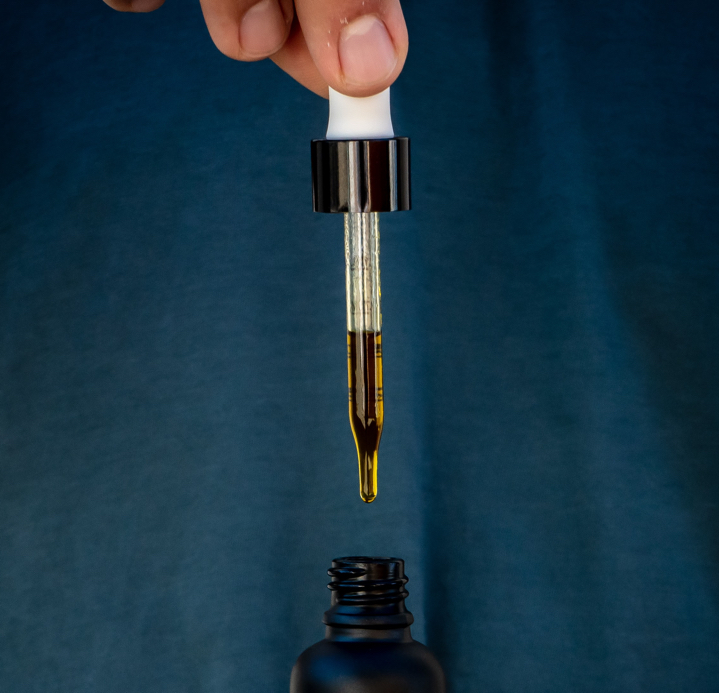
As discussed above, a key medicinal benefit of a full spectrum CBD oil is the presence of THC which contributes towards the overall ‘entourage effect’ and maximises the therapeutic impact of each compound.
THC is a psychoactive cannabinoid which can make you high if consumed in high quantities, however, it is only found in trace amounts in most CBD products. The majority of full spectrum CBD products contain less than 0.3% of THC which would not be enough to trigger an intoxicating effect.
The other compounds such as CBD itself as well as the other 100+ cannabinoids, terpenes and flavonoids contained in a full spectrum product are non-psychoactive compounds so will not make you ‘high’.
It’s important to find a highly rated, regulated company who make lab tested products to ensure the levels of each compound are as advertised on the label and meet the country’s law.
Will CBD oil show up on a drug test?
Drug tests are screening for THC which is the only psychoactive compound in cannabis.
Most drug tests would only be triggered if you are consuming a product with over 5% THC content. In the UK, broad-spectrum and CBD isolates contain traces below the limit of detection.
That being said the sensitivity of drug tests may vary and there is a small possibility it could pick up the trace amounts of THC in your system.
Choosing a regulated, lab tested CBD product will help ensure that the quantities of each ingredient are true to the labeling so you can minimise any risk of a positive test result.

Do you need a prescription to get full-spectrum CBD in the UK?
Full spectrum CBD products with significant amounts of controlled THC require a prescription to be legally bought in the UK.
Full spectrum CBD oils and tinctures are available for patients who have been prescribed cannabis as a medicine for their qualifying condition by a specialist doctor. Find out more in this article: How to get medical cannabis in the UK for your condition?
CBD broad spectrum and isolates can legally be bought over the counter or online without a prescription in the UK.
It’s important to buy a lab tested product from a reputable brand. Any company selling oils that contain THC without a prescription are breaking the law and making products that are illegal to use.
What cannabinoids are in full spectrum CBD oil? What are their therapeutic properties?
A full spectrum CBD product contains hundreds of cannabinoids, flavonoids, terpenes and fatty acids. We are still learning a lot about the medicinal properties of each compound as well as their overall therapeutic capabilities when taken together as an ‘entourage’.
Here is a brief overview of some of the key compounds and their possible therapeutic value:
CBD (cannabidiol)
Multiple studies have investigated the use of CBD to help with anxiety, PTSD and sleep. A 2019 double-blind study (gold-standard) conducted by the New York based Addiction Institute of Mount Sinai found that CBD reduced cue-based anxiety and cravings amongst 42 recovering heroin addicts. The University of Colorado performed a chart review with 72 psychiatric patients which found that anxiety improved but not sleep.
More investigation is needed to understand CBD’s effectiveness as a pain management treatment. A review of 11 randomized controlled trials including 1219 patients showed CBD could help with chronic neuropathy pain in humans. Further research is needed but there is a body of evidence suggesting CBD could help with chronic pain, muscle spasms caused by MS and arthritic pain.
Epidiolex is a CBD rich licensed drug approved by NICE and prescribed by the NHS in some cases to treat seizures caused by some rare types of epilepsy such as Dravet and Lennox-Gastaut syndrome.
THC (tetrahydrocannabinol)
Some of the strongest evidence for the use of THC as a medicine is to reduce nausea (especially when caused by chemotherapy), stimulate appetite, halt seizures in certain types of epilepsy and as a treatment for neuropathic pain and spasticity.
Sativex is a licensed THC and CBD medicine widely prescribed for multiple sclerosis and nausea caused by chemotherapy justified by successful studies as a treatment.
The trace amounts of THC in a full spectrum CBD product are believed to enhance CBD’s own medicinal properties as part of the entourage effect.
Further research is being conducted to justify its use to treat conditions as varied as glaucoma to tourette’s syndrome.
THCA (tetrahydrocannabinolic acid)
Initial research and anecdotal evidence suggest that THCA can also help with nausea and appetite loss, inflammation linked to lupus or arthritis and the treatment of neurodegenerative diseases.
Avenues of research have investigated the possible treatment of muscle spasms, pain and insomnia with THCA as well.
CBN (cannabinol)
There have been very few human CBN trials to date but animal trials suggest that this cannabinoid can help with appetite stimulation, work as a powerful neuroprotectant and may reduce intraocular pressure which is the biggest risk factor for glaucoma.
CBN and CBG have also been successfully tested on multiple antibiotic-resistant bacteria and could be a viable and sustainable anti-bacterial alternative.
Fatty acids
Studies suggest the fatty acids and vitamins found in abundance in cannabis oil could be good for protecting skin from aging, oxidation and inflammation and help with skin issues including psoriasis, eczema, acne and dermatitis.
Promising initial research linked a reduction of inflammation in the brain and improved heart health to the fatty acids found in cannabis but more research is needed.
Terpenes
Myrcene, beta-caryophyllene, limonene, alpha-humulene and pinene are the main terpenes found in CBD oil. Their therapeutic properties mirror many of those produced by the key cannabinoids.
Traditional Mexican medicine has used myrcene rich tea as a muscle relaxant and sedative for hundreds of years.
Data suggests beta-caryophyllene can help with inflammation especially in the colon and brain as well as more general pain management.
Little is understood about how limonene works in the body and brain. Most studies use much higher doses than the quantities present in CBD oil. There are some indications that it could have antifungal and antibacterial properties.
Alpha-humulene also exhibits antibacterial properties and could help terminate cancer cells when combined with other terpenes.
Pinene’s medicinal properties are still in the early stages of discovery. Research suggests it could help with treating anxiety, inflammation, pain and short term memory impairment. The practice of walking through pinene rich forests, also called ‘forest bathing’, has been proven to boost human immune function.
What CBD products are full spectrum?
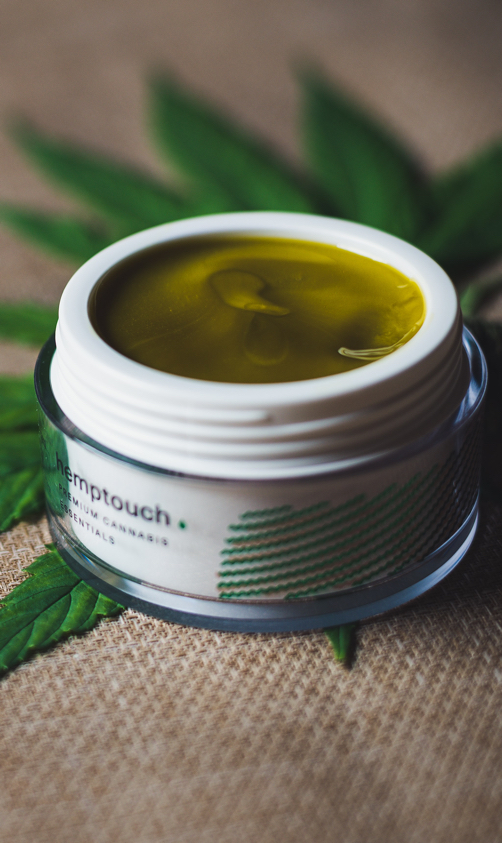
Here are some of the most common full spectrum CBD products types:
CBD Oils
CBD oils are made using an extraction process which pulls oil from the seeds, flowers and stalks of the cannabis plant.
This oil can be mixed with a combination of coconut, MCT, vegetable or hemp seed oil to make it easier for the body to absorb.
Oils can be dropped directly onto the capillary-rich area under your tongue for a few minutes and then swallowed so the CBD will reach your bloodstream quicker.
CBD Tinctures
CBD tinctures are made by combining extracts from the cannabis plant with a mixture of alcohol, peppermint oil or glycerin.
Again these products can be dropped under the tongue and then swallowed much like CBD oils.
CBD Capsule
CBD capsules are made using the same formula as CBD tinctures.
They can be more convenient for daily use with the dose pre measured within the capsule although ingestion into the bloodstream can take a little longer than the under the tongue method.
CBD Topicals
Topicals are CBD infused oils, balms or lotions that can be applied directly onto the skin in an area of the body that is experiencing pain, soreness or inflammation.
Disclaimer: This article is intended for informational purposes only and does not constitute medical advice. Always consult a doctor or other qualified physician before seeking treatment for a medical condition.
Contact Us
Get in touch
We love hearing from people who believe in the power of cannabis. If you are a patient, a potential supplier or an investor please say hello!

